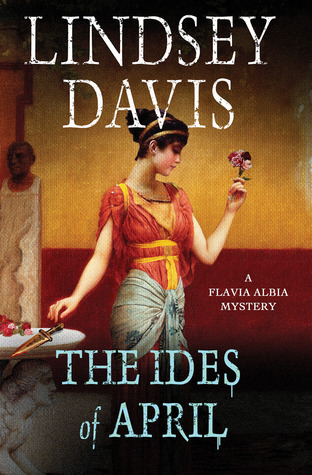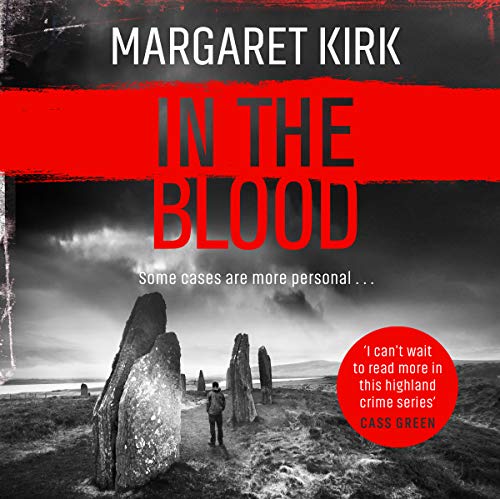Don't know why I forgot to do February's at the time - possibly rushing to finish Sea Stag but I can't remember! Anyway, here's two months' worth - some really good books here.

M.S. Morris, Aspire to Die: A good traditional police procedural set in Oxford around Christ Church. Nice diversionary tactics, and a pleasure to read. I tried the start of one of their (M.S. is a married couple) other series, but did not engage with it so much, so this is the series I'll come back to.

Arabian Noir: a set of short stories compiled by the Gulf Chapter (why
do I find that word in this context faintly threatening) of the Crime Writers’
Association. This was interesting, showing different perspectives, mostly
expat, of living in the Gulf. I particularly liked Michael Lynes’ own story but all
had something to offer. There was a slight problem with the paragraph
formatting, which made me stumble fairly frequently, but it was worth
persisting.

Tim Sullivan, The Dentist: I found the beginning of this book
unnecessarily detailed and complicated, and the frequent switching of points of
view confusing, but slowly I began to warm to it. The characters feel very
real, particularly in the way they cope with Cross and the way Cross copes with
them, and the puzzle of why the first police investigation went wrong is
intriguing. Nevertheless there was too much head hopping, which I hope is more
controlled in later books.

David Gatward, Unquiet Bones: Harry is trying to move into his new house
when two things conspire to hinder him: his father’s escape from prison and a
dead body in his new living room. A nifty plot which gets away with shifting
sideways halfway through, and the usual excellent bonding in his lovely team.

James Lovegrove, Sherlock Holmes and the Shadwell Shadows: this starts
with a very authentic-feeling, if rather heavy, introduction explaining how the author came by
the accounts of Holmes’ and Watson’s investigations in Lovecraft’s Cthulan
mythos. The language then lightens a little but despite a few anachronisms it still
feels pleasantly Victorian, and all much more readable like Conan Doyle. It’s
also fairly true to Lovecraft and a pretty authentic blend of the two – an
interesting concept, and yet another Holmes rewrite.
Cecilia Peartree, The Watcher in the Shrubbery: I was glad to see this second in the new Pamela Prendergast series, with all the charm of her other books. Pamela is trying to run an art course but is cursed in her venues, yielding to falling trees and dead bodies as she tries to teach her students. As is often the case in Peartree’s books, the real world intrudes into the kind of muddled existence many of us live in, but all is well in the end and our circle of Pamela’s acquaintance is nicely expanded, too.

William McIlvanney, The Papers of Tony Veitch: the second in the Laidlaw
trilogy. Again, if I had to find a fault it is that there is rather too much
introspection, and amongst the wonderful language there is sometimes a metaphor
or a simile over the top, but most of it is just lovely, apposite, telling, and
often very funny. And it’s definitely of its time and place, utterly 1970s
Glasgow, and proud as punch of it.

Andrew James Greig, The Girl in the Loch: Oddly, I found Tearlach
rather flat as a character until he turned violent, and he was suddenly much
more believable, less colourless efficiency. The deaths, too, though nasty, are
somehow understated. The plot is the saviour as it is increasingly interesting,
and gradually the characters develop. There are some odd errors, like ‘errant
nonsense’, and ‘she would be dammed if …’ which an editor should have spotted,
but then editors are human.

Caimh McDonnell, A Man with One of those Faces: I was expecting this to
be funny, from the reviews, but I hadn’t expected the depth to the plot which
comes, at least at first, from the well-rounded central character and his
self-imposed lifestyle. He takes pigheadedness to Ph.D. level and the action is
relentless and very amusing.

Kate Atkinson, Shrines of Gaiety: there’s a lot of biography here and
the plot doesn’t move along as fast as I’m used to with Atkinson, one of my
very favourite writers. But the atmosphere clings and I kept coming back for
more, as the plot twisted round and connected in a very Atkinsony way, some
paths comic, some tragic.

J.M. Dalgleish, The Talisker Dead: While I’m a bit off-put by the plot
twist about his son, I like the police in this series and of course the setting
is delightful, and portrayed much more as a proper island than a holiday
destination.

Lindsey Davis, The Ides of April: This, the first Flavia Albia book, did
not grab me as quickly as the first Marcus Didius Falco did years ago. I
absolutely loved that series, and hoped to love this one as much. Maybe I
shall, but I was not quite so taken with this,
which had a more bitter feel to it. In the end I quite enjoyed it, but I won’t
rush back for a second, not just yet.

Louise Ehrlich, The Sentence: Tookie has served her time in jail for a
crime she sort of committed, though she was not aware of the depths of it at
the time. Now she is living in Minneapolis, married to the police officer who
arrested her, and working in a bookshop, but she is bothered by the ghost of a
particularly irritating reader. I found Tookie’s self-deprecating narrative
lovely to read, rough around the edges but very endearing as she enjoys a life
she is fairly sure she does not deserve. Then Covid strikes, and the awful
murder of George Floyd, and real life intervenes. This is a wonderful book,
full of layers and delight – so pleased I found it.

Margaret Kirk, In the Blood: I had reviewed this and for some reason my
laptop is reverting to earlier versions of documents, so it was lost. Ah, well.
Lukas Mahler, fully paid-up member of the awkward squad, travels to Orkney in
this one, though not exactly an Orkney I know (some geographical quirks, certainly). He seems to be increasingly high
maintenance and annoying, and I don't think any of the other characters really made an impression, but the plot was interesting enough and enjoyable. The title looks to me
completely meaningless and unmemorable, something slapped on by a publisher, no
doubt.
Jean Gill, Among Sea Wolves: Our main characters are away from Orkney
and on a voyage, or pilgrimage, to Jerusalem, in a party that even from the
start is divided and fractious. With Skarfr having to hide his true
relationship with Hlif, things are tense anyway. This is another tremendous
episode in this saga of Viking adventure and romance, where you can see the
terrific quantity of research that has gone into it and then forget it and
enjoy living the book with all its excitement, not just with Skarfr and his
ever-growing list of skills, nor with the wonderful and mystical Hlif, but with
the people he has left behind in the north and all their hideous politicking. A
great set-up for the next in the series.

Dale Lehmann, A Day for Bones: My fourth in this series which is fast
becoming my favourite American police procedural. This one begins with a flood
and the mysteries the flood uncovers – bones, chiefly – and a possibly related
series of minor problems at a gun shop. Some of the more prominent characters
from the first three books take a bit of a back seat here as new ones come in:
there’s a touch of over-inclusivity but perhaps that’s an American thing, and
it isn’t too intrusive on the plot. Anyway, these are really enjoyable, so dive
in!
And as for me, I'm doing a bit of other writing at the moment - a couple of novellas for various purposes. Then, I think, it's probably back to Second World War Aberdeen and Alec Cattanach - care to join me?

